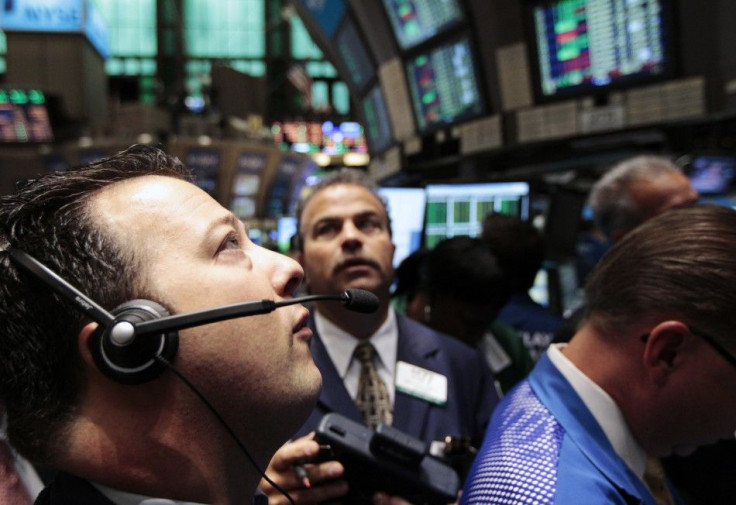Politicians Huff and Puff - Markets Call Their Bluff

In days past, jawboning from Presidents and central banks was often enough to stem a financial markets selloff. Not anymore.
Over the last two weeks, President Barack Obama, ECB President Jean-Claude Trichet, Fed Chairman Ben Bernanke, and the G-7's leadership have all appeared ineffective in heading off market turmoil.
On Wednesday, markets around the world sold off -- this time in reaction to concerns about the stability of major French banks. This wiped out a relief rally that lasted all of two hours the previous day trigged by a U.S. Federal Reserve statement.
For veterans of Wall Street, this is uncharacteristic, as they could once count on public servants, who had lasting influence on setting the market tone, if not directing it higher for more than just a few hours.
People "want to hear the truth. They don't want people blowing smoke. They want to hear the truth and ultimately the market exposes the truth," said Ken Polcari, managing director at ICAP Equities, a NYSE floor broker.
This may go some distance to explaining the market's sour reaction to the deal that raised the debt ceiling. Many investors were expecting a rally out of relief once U.S. lawmakers put the finishing touches on a zero-hour deal to raise the U.S. debt limit on August 2.
It didn't happen; much the opposite, and stocks have been stumbling since. Obama's compromise with Republicans, who promised again to fight subsequent increases in the debt ceiling with demands for additional spending cuts, may have set a disturbing precedent for those in the market.
Selling picked up Monday after Obama spoke after Standard & Poor's downgraded the U.S. triple-A credit rating--which S&P partially attributed to lack of confidence in lawmakers.
"Obama has no capacity for dealing with (Congress) and he mistakenly thought they would do the right thing," said Seth Glickenhaus, founder of Glickenhaus & Co. in New York.
He would know. Glickenhaus has been a fixture on Wall Street for 77 of his 97 years, having started on Wall Street in 1934. He said certain presidents, including Franklin D. Roosevelt -- who he said "had a gift for gaining the confidence of the public" -- and Lyndon Johnson, influenced people and markets in ways Obama does not.
As he sees it, Obama is speaking too much rather than using the power of his office to have a greater impact.
"He is far too conciliatory and too weak in his approaches," said Glickenhaus.
More recent examples of officials who had a calming influence on the market include former Treasury Secretary Robert Rubin, who cemented his reputation during the Mexican "Tequila" currency crisis in December 1994, one that lasted through his tenure during the Clinton administration.
Even last year's speech in Jackson Hole, Wyo., when Bernanke first hinted at a second round of quantitative easing support, the market took it as a jolt of confidence.
BIG MARKETS DWARF OFFICIAL WORDS
Some of the reasons officials have less sway on the markets is sheer size. A generation or so ago, a statement from rich industrialized nations was enough to move the market, backed up by intervention in currency markets or the mere threat of action.
Examples included the Plaza Accord of 1985 or the Louvre Accord two years later, statements that helped change the course of the U.S. dollar.
But as markets got bigger, officialdom became less powerful, and in the current environment, there's very little the presidents, finance officials or central bankers can do.
If nothing else, it reflects the fact that policymakers have few tools left to help markets now.
Confidence in the ability of U.S. and European policymakers to stem sagging growth or Europe's debt crisis has all but evaporated after several short-term fixes.
Interest rates are at record lows, there is no money for massive spending projects, and politicians are focused on austerity rather than throwing money at the problem of slow growth.
In 2010, Bernanke still had a few magic tricks. As another meeting in Jackson Hole approaches, it's notable that most of the stock-market rally that occurred in the wake of his speech there a year ago has evaporated.
"Where does Bernanke go next?" asked Paul Mendelsohn, chief investment strategist at Windham Financial Services in Charlotte, Vt.
"I have no idea where they go from here. They are clearly going to have to try something -- but what it is and when they pull the trigger -- I'm not seeing it."
© Copyright Thomson Reuters {{Year}}. All rights reserved.





















